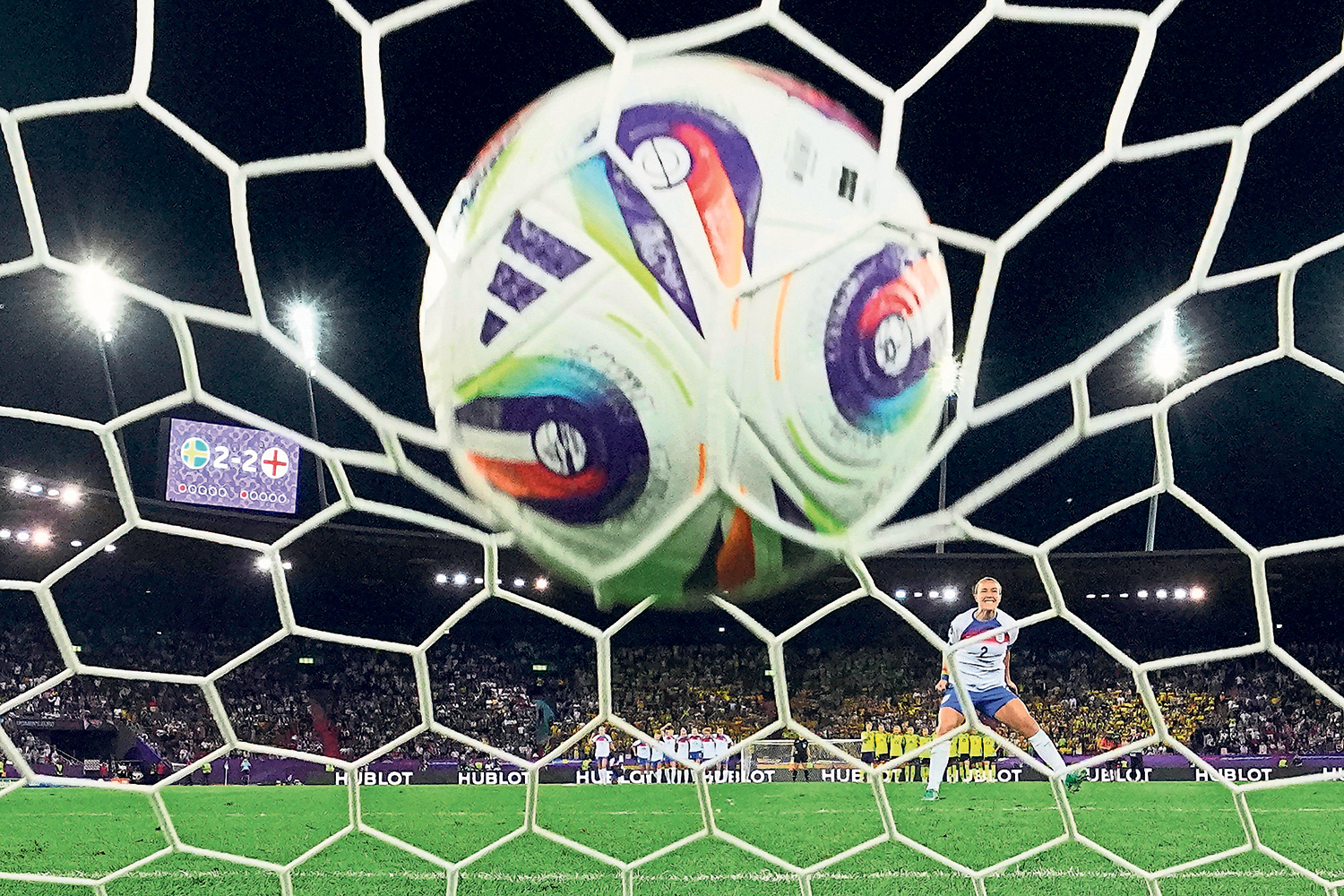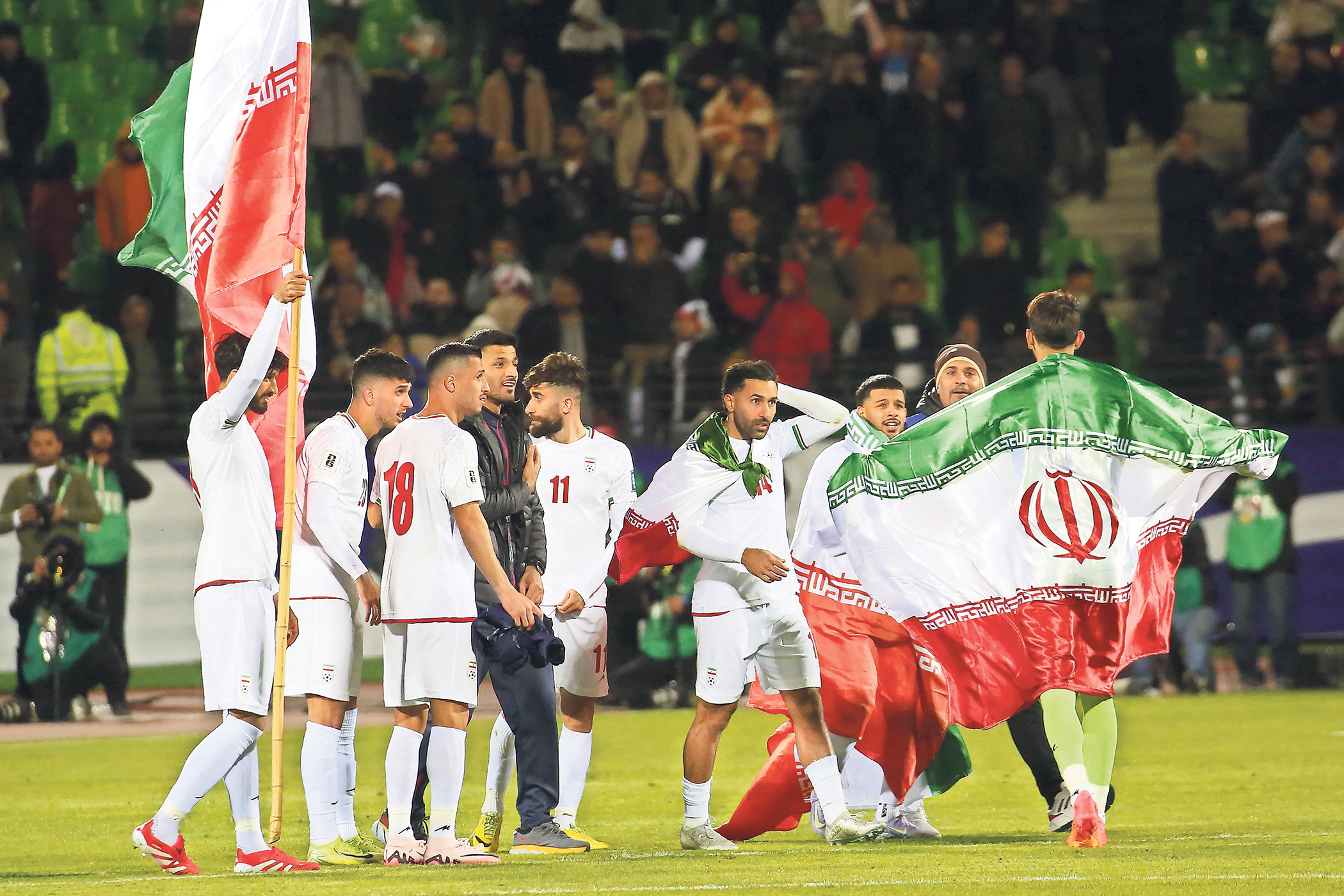There was no player more fitting to be England’s hero on Thursday night than Lucy Bronze. Participating in her seventh international tournament, Bronze is the only player in this England squad who knows what it is like to go away with them and not make it to a semi-final. Against Sweden, she was at the back post to nod in England’s first goal before stepping up to take the winning penalty. In between, she had taken over the captain’s armband when Leah Williamson was substituted, worn around her wrist, and strapped up her own thigh.
Prior to the match, Bronze had said: “I will give anything and everything in an England shirt.”
“I think the only way to get her off the pitch is in a wheelchair,” joked England manager Sarina Wiegman after their win.
Bronze encapsulates what this England team have become. Twelve years ago, she was at her first major tournament, the 2013 Euros in Sweden.
It was a chastening experience for England who ended up finishing bottom of their group with just one point from a draw against Russia. Few would have predicted then that they would make the semi-final stage as a minimum at the next six international tournaments.
Despite making the final of the 2009 Euros, England’s record at international level was far eclipsed by teams like Germany, Sweden and Norway.
They stand alone among their other European counterparts in terms of this recent success. Spain were knocked out at the quarter-final stage by England at Euro 2022, Germany had a shock group stage exit at the 2023 World Cup while France fell to Australia at the quarter-final stage at the same tournament in a mammoth penalty shoot-out. The closest any other team has got to their streak are Sweden who had made the semi-finals of the previous three tournaments, a record that England obviously ended the other night.
There have been rocky moments for England in each of the tournaments they have made. There was a must-win group stage game against Colombia in 2015. The penalty shoot-out against Nigeria in the Round of 16 in 2023. None of that was rockier than trailing 2-0 to Sweden with 11 minutes to go and giving them two opportunities to win the penalty shoot-out as was the case the other night.
Despite those individual matches, the six tournaments as a collective that stretch over a decade from the 2015 World Cup to the 2025 Euros paint a portrait of an incredibly successful international programme. The Euro 2022 win was understandably considered a watershed moment, but the sustained success is arguably as impressive.
That 2013 Euros group stage exit brought to an end Hope Powell’s 15-year tenure as England coach. Bronze herself did not play a single minute at the tournament and has previously said she “didn’t really feel like [she] was in the squad”.
Newsletters
Choose the newsletters you want to receive
View more
For information about how The Observer protects your data, read our Privacy Policy
Mark Sampson was appointed in Powell’s place and led the England team at the 2015 World Cup, where they made their first ever semi-final.
“As teammates we really came together and started to believe over the course of that tournament,” said goalkeeper Karen Bardsley back in 2023. “Barrier after barrier, we stood up and owned it.”
Despite a heartbreaking late own-goal from Laura Bassett to lose the semi-final against Japan, England went on to finish third, beating Germany 1-0 after extra time. It was the first time England had ever beaten Germany, sewing the seeds for when they beat them again – under the Wembley arch on a sunny July afternoon in 2022.
That is just one example of how England’s experiences over the years have set them up to overcome hardship. It becomes a self-fulfilling sequence whereby what has gone before allows them to succeed again, thus building an even bigger body of work from which to draw on when the going gets tough.
“This team is just incredible,” said Wiegman after the Sweden match. “They stick together. We had the disappointment of the game against France but the players had conversations together and took responsibility. They do whatever is necessary to try and turn around the result, as we did today.”
‘It’s a big source of pride that England have got to the last stages of these tournaments’
‘It’s a big source of pride that England have got to the last stages of these tournaments’
Defender Esme Morgan
Wiegman, of course, has been a huge part of England’s success, having been manager for three of their six semi-finals. Her record is even better, having made the final of all four European Championships and World Cups she has managed at. She will be hopeful she can extend that to five when England play Italy on Tuesday night in the semi-final.
Her appointment in 2021, after Phil Neville’s departure from the role, was less of a turning point and more of a next step.
The FA have made clear how crucial she has been to the team, with chief executive Mark Bullingham stating before the tournament that even if England exited at the group stage, Wiegman would stay on for the 2027 World Cup.
The FA’s work at youth levels has also fed into creating a cycle that allows young players to come into the squad as older players move on, ensuring the quality of the team as a whole does not drop. Twenty-two of the 23-player squad has been capped at youth level for England, and break-out star Michelle Agyemang, who scored the equaliser against Sweden, spoke about how important her experiences at age group level have been in preparing her for a senior tournament.
“Both times I’ve been at youth tournaments, we’ve lost at the semis, and that’s been really disheartening. It gives you the fire to go into the next tournament and do better than you did last time.”
As a group, the England players clearly feel boosted by the experience they can draw on within camp. “It’s amazing speaking to Alex Greenwood and Lucy Bronze about their journeys,” said Esme Morgan.
Greenwood has participated in every tournament since 2015, too.
“It’s a big source of pride that England have consistently got to the last stages of these tournaments,” added Morgan.
While it is easy to get wrapped up in the individual matches that take place, the bigger picture is that England have justified themselves as serious competitors on the international stage.
Photograph by Martin Meissner/AP



